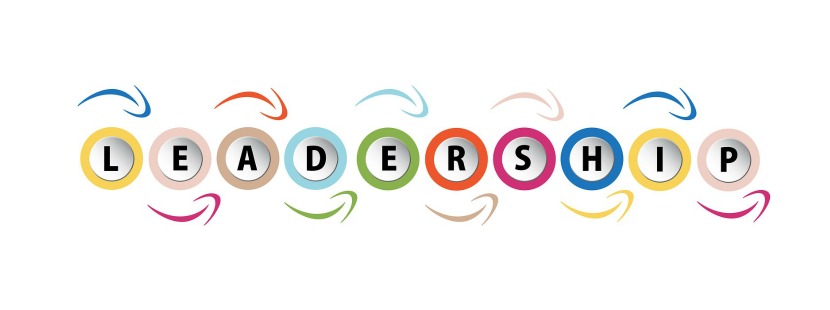By Patricia Gerber B.Sc.(Pharm), ACPR, Pharm.D., FCSHP
Becoming a pharmacist means becoming a leader. Regardless of titles or roles students accept upon graduation, leadership is about influencing, which is what exemplary patient care requires. Although leadership development is recognized by pharmacy schools and faculties as a key competency, challenges exist in the implementation, including determining how and at what year level to teach it, and defining the scope, breadth, and depth of teaching amid competing curricular priorities.
Portraying Leadership In Educational Outcomes
Resembling the efforts of AACP to develop student pharmacists’ leadership, the Association of Faculties of Pharmacy of Canada’s (AFPC) Educational Outcomes (EOs) portray pharmacists as leaders. The 2017 edition replaced “Manager” with “Leader-Manager” as one of seven roles pharmacists must embody. Within each role, key competencies broadly define what graduates need to achieve. They also point to curricular priorities, but do not prescribe what needs to be taught or how. For example, for “Leader-Manager”, it states “…pharmacy graduates engage with others to optimize the safety, effectiveness and efficiency of health care, and contribute to a vision of a high-quality health care system”, and graduating pharmacists should “demonstrate leadership skills to enhance pharmacy practice and health care”.
In order to create change agents in healthcare delivery, Canadian faculties and schools of pharmacy are responsible for addressing student leadership development. This responsibility is the stimulus for a national dialogue that will explore student leadership development in curricula and create a platform to bring leadership into focus.
A National Platform About Leadership Development
With support from the Council for Continuing Pharmaceutical Education (CCPE), a group of academic leaders, committed to developing future pharmacy change agents, will meet to discuss leadership at the 2019 AFPC Canadian Pharmacy Education and Research Conference in Edmonton, Alberta. The meeting will help advance leadership teaching and learning through discussion about best practices and opportunities. Building on Traynor et al.’s guiding principles1, other relevant literature, expert opinion from participants, and the experience of the University of British Columbia’s (UBC) Faculty of Pharmaceutical Sciences’ Leadership Experience Applied to Pharmacy, “LEAP” course series. The experience developing and launching LEAP led to the idea of initiating this national dialogue aimed at advancing pharmacy student leadership development across Canada. This national dialogue capitalizes on the experience with a recent Canadian discussion about professionalism. An environmental scan of curricular efforts became an AFPC professionalism committee. Over the course of a year, this group developed a Professional Role User Guide, which gives guiding principles, a framework of milestones for student progression, and assessment strategies. This initiative highlighted the importance of collaborating to enhance curricular developments across programs. It also demonstrated the merits of adopting a grassroots approach, where a national scan of current efforts is the starting point for further conversations about common challenges and opportunities.
In a recent commentary about management education in pharmacy curricula, Dr. Mospan proposed an approach to curriculum development that begins with scholarly dialogue and a national scan of how and to what extent management is currently taught in pharmacy curricula.2 Convening at the 2019 AFPC conference will catalyze expansion and effectiveness of the efforts of each program through enhanced understanding of curricular efforts in pharmacy leadership. In particular, the merits, opportunities, and challenges of teaching foundational leadership in the classroom setting will be considered, as well as in simulated and experiential settings.3 In addition, faculty leadership development will be discussed.
Importance of National Dialogues – Goals and Outcomes
The discussion during the AFPC Meeting will define leadership and explore what “demonstrate leadership skills” in learning environments looks like. We will also begin to explore the challenges in evaluating leadership curriculum and student leadership skills to take a reflective, systematic, and scholarly approach to our work. This meeting will result in projects and research on student leadership skills, all aimed at developing excellent pharmacists equipped to advance care provision.
The adopted approach can be applied to other areas of curriculum development in both the US and Canada; it can even encourage cross-border conversations, with the ultimate goal of advancing the profession.
Exemplary patient care within our profession requires pharmacists with leadership knowledge and skills. Time-constrained curricula, AACP and AFPC standards, and challenges in defining, teaching, and assessing leadership present a great opportunity for programs to collaborate to make leadership a prominent and attainable competency in pharmacy graduates.
Acknowledgements
To my colleagues across the other nine Canadian pharmacy faculties/schools, who have enthusiastically accepted the invitation to meet and, in doing so, have agreed to collaborate to improve the leadership education of our students.
To Dr. Kristin Janke (Professor, Department of Pharmaceutical Care & Health Systems; and Director, Wulling Center for Innovation & Scholarship in Pharmacy Education at the University of Minnesota) for contributing to this project by facilitating our upcoming meeting.
References
1. Traynor AP, Boyle CJ, Janke KK. Guiding Principles for Student Leadership Development in the Doctor of Pharmacy Program to Assist Administrators and Faculty Members in Implementing or Refining Curricula. Am J Pharm Educ. 2013;77(10): Article 221.
2. Mospan CM. Management Education Within Pharmacy Curricula: A need for Innovation. Curr Pharm Teach Learn. 2017; 9(2): 171-174.
3. Zgarrick DP. “Assure” Foundation for Management and Leadership in Pharmacy Curricula Pulses. Curr Pharm Teach Learn Scholarly Blog. September 5, 2017 https://cptlpulses.com/2017/09/05/assure-foundation-for-management-and-leadership-in-pharmacy-curricula/

Patricia is a Senior Instructor and the Director, Degree Programs for Pharmacists, at the University of British Columbia’s Faculty of Pharmaceutical Sciences. Educational scholarship interests include professionalism and ethics, leadership, and reflective learning. In her free time, Patricia enjoys spending time outdoors with her family, jogging, and flamenco dancing.
Pulses is a scholarly blog supported by a team of pharmacy education scholars.

Hey Patricia, Thanks for such initiation. “Becoming a pharmacist means becoming a leader”. Every pharmacist should be a leader. I work for a pharmaceutical company as assistant scientist, that’s why I know the necessity of leadership on a person to do work and take proper decision.
LikeLike